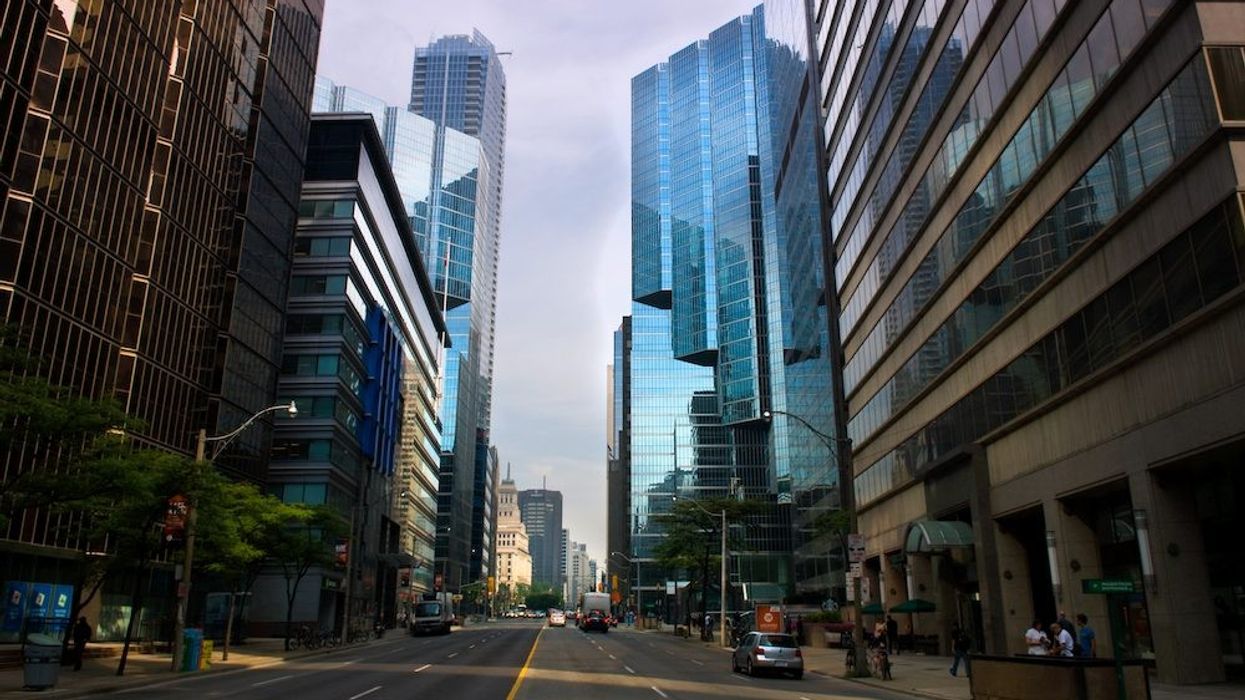Keeping up with the ever-changing real estate market is no easy feat, and although the residential market tends to take the lion's share of headlines, the commercial market is currently undergoing significant shifts that will have major implications for the rest of 2023.
"Almost on a weekly basis, things changed this year," says Damon Conrad, National Director of Royal LePage Commercial.
Although some of these shifts have benefitted those in the industry -- like the booming industrial market -- others have left commercial investors stuck trying to adapt to changing wants and needs.
From pricing predicaments to an increased demand for tech-equipped properties, there are several major trends for the Canadian commercial real estate market on this year's horizon.
Uncertainty Around Pricing
One of the biggest trends that's become evident in the commercial real estate space this year, Conrad says, is discrepancy and uncertainty around pricing. More specifically -- and not too surprisingly -- owners are often wanting more than buyers or tenants are willing to pay. These differences appear most prevalent on the sales side, Conrad says, but do exist in leasing as well.
"Discovering the true value of real estate is taking longer," Conrad explains. "I think that's indicative of a lot of things in 2022: the mix of interest rate increases; high levels of inflation; uncertainty in the geopolitical environment in the world, causing everybody to take a step back."
And the price discrepancies are by no means small. Conrad points to a client's property that was recently given a valuation of around $150M. When two offers came in, they were both in the low-$100M range.
"So it's not insignificant," he says. "In that instance, we're talking $40M+, so it could be anywhere from a 20-40% discrepancy."
Of course, within the sphere of commercial real estate, various segments are performing in drastically different ways. Industrial properties continue to be "the belle of the ball," Conrad says, with near-zero vacancy rates in Toronto and Vancouver keeping competition and pricing healthy.
Office properties, on the other hand, remain in flux, as companies continue sorting out their return-to-office policies.
"There are a lot of companies [that] still don't have a good thumb on the pulse, in terms of what their office real estate needs really are," Conrad says, pointing to an uptick in office subleases on the market.
Shopify made headlines earlier this year after it announced it would no longer be occupying its brand-new office space in downtown Toronto, instead opting to put the 348K-sq.-ft office up for sublease. Conrad says the market will likely see more moves like this, but notes their prevalence will vary from industry to industry. Large companies like Deloitte and Google, for example, recently expanded their Canadian office space.
As for retail realty, while the segment has made significant strides since pandemic measures ended and people began returning to in-store shopping, investors are still seeking new ways to compete with e-commerce and bring shoppers back in full.
"We're noticing, in Canada specifically, that the landlords are trying to pull consumers back to destination shopping," Conrad said. "They're going to be adding more initiatives and more attractions to their malls to focus on dwell time."
Who Has the Capital?
Differences in value aside, another major trend Conrad sees is a clear dichotomy between investors who are sitting on significant capital, and those who aren't. For the latter, rising interest rates and tightening borrowing requirements are making it harder to raise funds and move projects forward.
"Some people are sitting with plenty of capital, and [are] waiting on the sidelines and strategically waiting for opportunities, [while] others that were kind of caught in the wake are trying to continue projects and finding it more difficult," Conrad said.
Rising construction and labour costs are major financial factors that cannot be ignored when it comes to funding projects -- a hurdle that Conrad says will remain prevalent for developers throughout the year.
"On our client side, we will be advocating for them to to be creative," Conrad said. "To be creative in their financing, be creative in their project costs, and be creative in their transactions. So whether that means more free rents, more tenant inducements, [or] step ups in the rent escalations being less than what you previously would have done.... I think right now, real estate will be about those who are creative and adaptable."
High-Tech Properties Have Higher Demand
For finished commercial projects that do hit the market, Conrad says there's been a clear preference shift to properties outfitted with high-tech features, including environmental, social, and governance property technology, as well as cybersecurity.
For office spaces in particular, technology setups to accommodate remote workers and layouts that are compatible with desk hoteling are top of mind.
Conrad again emphasizes the necessity of remaining adaptable to changing market conditions -- and specifically changing interests -- in order to remain competitive.
"You're going to have to pivot and remain adaptable to your client's needs," he says.
Although the idea of having to constantly adapt may seem daunting, Conrad notes that "uncertainty and fluctuation will always create opportunities."
"My early mentors back in the day always always told me that you can make as much money when the market's on the way up as you can when the market's on the way down," he says. "You just have to be able to adapt."





















